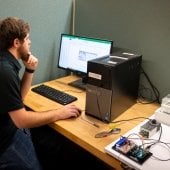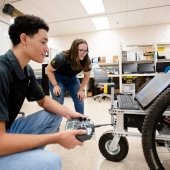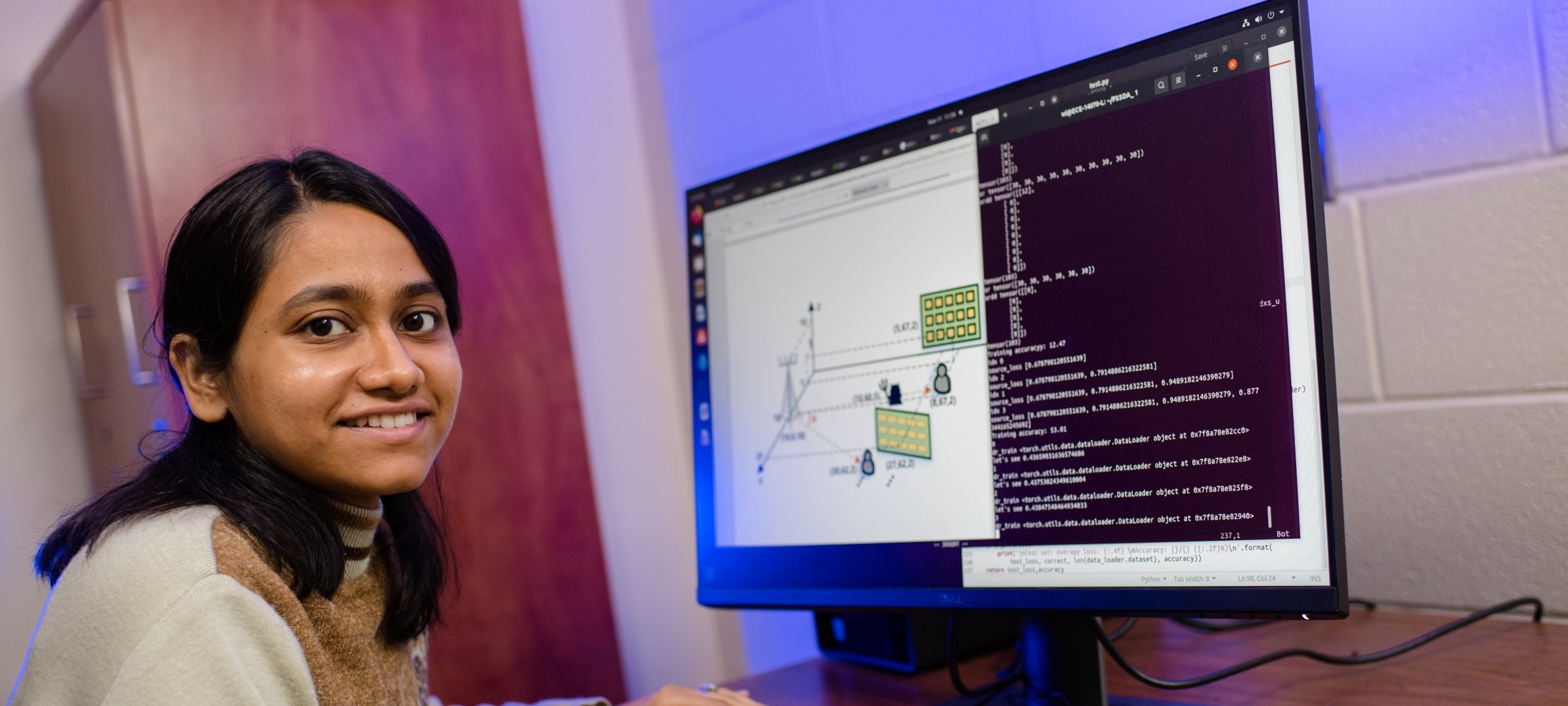Electrical, computer, and robotics engineers provide pivotal technologies to our modern society as we seek greater sustainability and undergo the 4th industrial revolution. This is exactly what we do—and you can learn to do it, too, by joining us here at Michigan Tech.
In the Department of Electrical and Computer Engineering (ECE for short), we offer a supportive learning environment and three degree programs to provide many possibilities for your future. Our programs allow you to customize your degree to build a better tomorrow, by choosing from concentrations and focus areas within your major.
Request Information
Form loading . . .
At Michigan Tech you'll tap into all the strengths and advantages of a large engineering program, set in a friendly, supportive learning environment. You'll find our dedicated faculty and staff maintain an open door policy. We enjoy mentoring students.
You'll find real-world experience can be gained in a myriad of ways—internships, co-ops, undergraduate research, study abroad, senior design, Enterprise, and more. Hone skills that will enable you to bring immediate value to your employer once you graduate, in a career you're passionate about.
Tomorrow needs engineers prepared to tackle challenges in robotics and automation, artificial intelligence, machine learning, green, renewable and alternative energy, defense and aerospace, climate change, computer engineering, electrical engineering, power engineering, healthcare, robotics engineering, automobiles, mobility, and the Internet of Things.
The Michigander EV Scholar's Program provides up to $10,000 scholarships going to as many as 350 top tech students at participating universities, including Michigan Tech.
We're ready, are you?
Bachelor's Degrees

Electrical Engineering
Make your own contributions to the 21st century—in technological areas we can only begin to imagine. As an electrical engineering student, take advantage of some of the best opportunities in the nation for laboratory-based learning, real-world design, and engineering entrepreneurship.

Computer Engineering
Computer engineering is a steadily growing field, and the world needs skilled professionals who can work comfortably on both the software and hardware sides of a computer system. A computer engineering degree from Michigan Tech will make you uniquely qualified to bridge this gap and succeed as a computer-integration specialist.

Robotics Engineering
Robotics engineering is at the intersection of electrical engineering, mechanical engineering, and applied computing. Understand the “why” of robots and autonomous machines in a variety of settings beyond industry and manufacturing, including autonomous vehicles. Learn how to interface robotics with other systems. Take courses in robot operating systems, microcontrollers for cyber-physical systems, electric machinery and drives, sensation and perception, and so much more.



